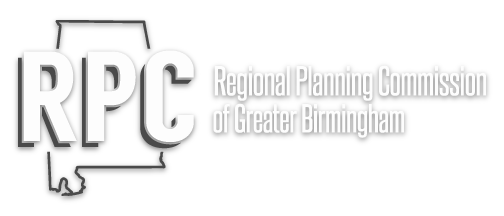The Heart of Alabama Rural Planning Organization
The Heart of Alabama Rural Planning Organization (HARPO) is responsible for transportation consultation in Blount, Chilton, St. Clair, and Walker counties. HARPO provides an opportunity for public officials and interested parties to participate in the transportation planning process. HARPO assists rural communities with education of transportation processes and identification of issues and needs for future projects.
———————————————————————————————
HUMAN SERVICES COORDINATED TRANSPORTATION PLAN
In 2024, the RPCGB updated the 2020 Human Services Coordinated Transportation Plan (HSCTP). This plan identifies needs of individuals with disabilities, older adults, and people with low incomes in Blount, Chilton, Jefferson, Shelby, St. Clair, and Walker counties and establishes strategies to meet those needs. The HSCTP guides decision-making regarding the allocation of Federal Transit Administration (FTA) Section 5310 program funding for projects that increase mobility for individuals who are elderly or disabled.
———————————————————————————————
Work ProgramS
The Planning Work Program is the document that describes the funding for HARPO and the duties of the Regional Planning Commission of Greater Birmingham for carrying out the responsibilities.
The Alabama Department of Transportation (ALDOT) also has a work program that describes statewide funding for rural areas.
FY 2024 ALDOT Statewide Rural Work Program
———————————————————————————————
Walker County Transportation Plan
Walker County has gained attention for its severe opioid epidemic. Recognizing that transportation is a key component in recovery, the RPCGB received a grant from the Appalachian Regional Commission to develop a transportation plan for Walker County to address access to recovery and aftercare services, including employment. The plan was completed in April 2020 and can be accessed below.

